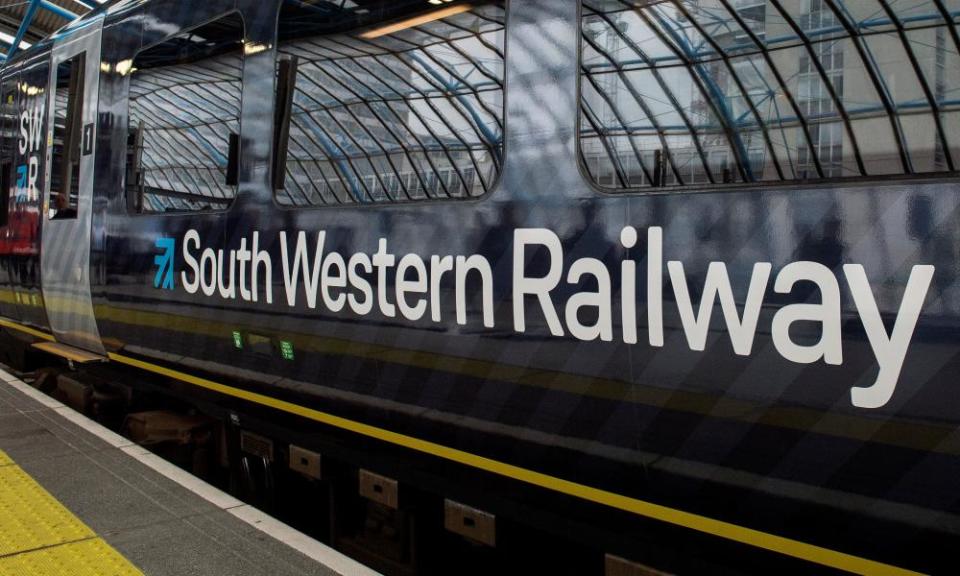South Western Railway not sustainable, says Grant Shapps

The South Western Railway franchise is “not sustainable”, the transport secretary has said, increasing the likelihood that the route will become the latest to be nationalised.
Grant Shapps’s warning, which comes as the rail franchising system looks likely to be ripped up and redrawn, follows a period of poor financial performance for SWR, a joint-venture between FirstGroup and the Hong Kong firm MTR. Shapps said options for the franchise included nationalisation or the issuing of a new contract to SWR’s operators.
Filings at Companies House published earlier this month showed the business lost £137m in the year to March 2019 and was in danger of going bust before the end of this year.
The franchise has been beset by poor punctuality and reliability, combined with slower-than-expected revenue growth and a wave of strikes in a dispute over the use of guards on trains. Shapps said the company’s recent financial statements indicated that the franchise, which began in August 2017 and stretches from London to the Surrey commuter belt and Exeter, “is not sustainable in the long term”.
SWR has not yet failed to meet its financial commitments, said Shapps, but the Department for Transport “must prepare suitable contingency measures”.
Earlier this month, Shapps began the process of nationalising the Northern rail franchise, two years after the government took control of the east coast mainline.
The government-commissioned Williams review into the future of the rail industry is due to report soon, and the review’s chairman, Keith Williams, has already said franchising no longer works in its current form.
A lawsuit launched by the train operator Stagecoach, alongside Virgin Trains and France’s state-backed SNCF, could force the government to pay tens of millions of pounds in compensation and cancel two franchises.
The train companies claim they were improperly disqualified from rail franchise bids because the government expected them to take on an unrealistic amount of financial risk relating to the railways pension scheme.

